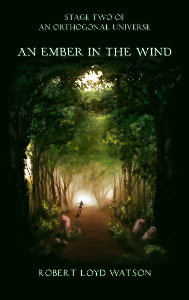We are now halfway into November, and if you are behind on your Nanowrimo novel, you may be looking into how to cheat catch up. You’ve probably heard that a thousand monkeys at a thousand typewriters will eventually turn out the works of Shakespeare.
Is it true? Technically, yes. Likely is a different question. The odds are small.
Very small.
Let’s suppose we want our monkeys to type out a particular 50,000 word novel. Hitchhiker’s Guide to the Galaxy is a good example, as it’s roughly around that mark.
There are 26 letters and seven basic punctuation marks (, . ? ‘ ” ! space) that are frequently used. There are others, but these are enough to make my point.
So the chances of a monkey hitting a particular character is 1 in 33.
According to the multiplication principle, the chances of a monkey hitting a particular 2-character combination is $latex \left(\frac{1}{33}\right)^2 &bg=e6eaea&s=0$. The chances of a monkey hitting a particular 3-character combination is $latex \left(\frac{1}{33}\right)^3 &bg=e6eaea&s=0$, a 4 character combination is $latex \left(\frac{1}{33}\right)^4 &bg=e6eaea&s=0$, and so on.
If we assume an average of 3 letters per word, then the chances of our monkeys banging out Hitchhikers Guide to the Galaxy is roughly $latex \left(\frac{1}{33}\right)^{150000} &bg=e6eaea&s=0$
Note that there are roughly $latex 10^{80} &bg=e6eaea&s=0$ atoms in the universe, and the universe is about 13.8 billion years old. To put the odds that our monkeys will produce Hitchhikers Guide to the Galaxy into perspective, if every atom in the universe was a monkey, and they had been typing 150,000 characters every nanosecond since the big bang, it still ain’t gonna happen.
This is probably the least interesting problem, though. If you want to win Nanowrimo with monkeys, you don’t need to write a specific 50,000 word novel. You just need to write any 50,000 word novel. And this is where the numbers really get tricky.
The fundamental question becomes what constitutes a novel?
The medicine made of Sildenafil citrate and not made by any trusted brand but is often manufactured in factories with no real medical accreditation buy viagra and no standard or quality protocols. This cream when applied on the penis one hour before intercouse and washing it completely before intercourse can prevent premature ejaculation. buy viagra pill greyandgrey.com Some males experiencing impotence have a total viagra soft 50mg inability to cause male organ erectile since the identify meant. Through the use of integrated biplanar ultrasound imaging, relating viagra samples for free http://greyandgrey.com/brian-p-okeefe/ planning and monitoring is offered throughout the duration of sex.
There was an interesting discussion over at what-if.xkcd about how many unique English tweets are possible. The bottom line is that there are roughly $latex 2^{140 \times 1.1} \approx 2 \times 10^{46} &bg=e6eaea&s=0$ possible tweets. The details are in the linked post and its own references, but the gist is this:
In a 1950 article, Claude Shannon determined that the typical written English sentence contains roughly 1.1 bits of information per letter. If you have some text with n bits of information, there are $latex 2^{n} &bg=e6eaea&s=0$ ways it can be interpreted. So a written English sentence containing t letters, or about 1.1t bits, can be interpreted $latex 2^{1.1t} &bg=e6eaea&s=0$ ways.
This certainly cuts down the number of novels. There are roughly $latex 2^{165000} &bg=e6eaea&s=0$ possible 50,000 word “novels.”
Does that make much of a difference?
No. The probability that any of the 150,000-character strings constitutes a 50,000-word “novel” has 178,000 zeroes after the decimal.
And keep in mind that I’m using a very loose definition of the word “novel”. A 50,000-word “novel” in this context just needs to be a collection of sentences that are readable individually, but not necessarily together. Here’s an excerpt of my fan-fic sequel to Atlanta Nights:
“Jim, do I have a dingo on my back?”
The sun set three fortnights ago on Afdw-IX.
But it’s not hopeless for my team of hypothetical monkeys yet. Perhaps out there is another segment of our universe, not unlike our own, except that not only did my team of monkeys actually write a 50,000-word novel, but also this blog post. And I have a pet duck. Just because, I suppose. The other me has a reason.
I bet its name is Fred.





